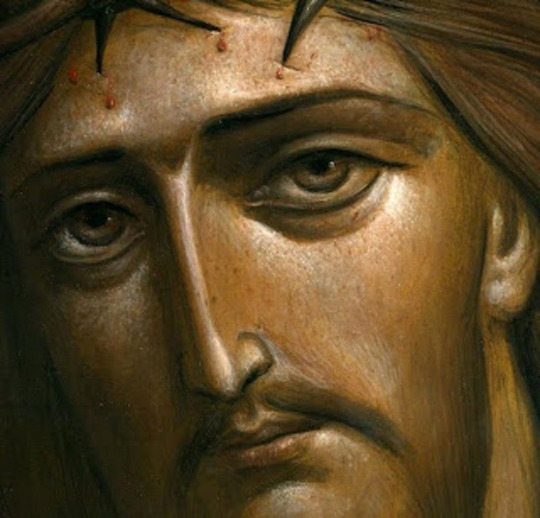#kingdom of God
Explore tagged Tumblr posts
Text

So do not worry, saying, ‘What shall we eat?’ or ‘What shall we drink?’ or ‘What shall we wear?’...But seek first the kingdom of God and His righteousness, and all these things will be added unto you. Matthew 6: 31&33
How often we push our Bible reading and prayer to the end of the day. We hurriedly read a verse or two, say a prayer and plop into bed. We hardly have the energy or even the concentration to understand His word. It's no wonder that we feel stressed and drained even before it's midday.
The Bible urges us to seek the things of God first, His kingdom and His righteousness. The verse doesn't mean, Jesus will immediately make us rich or influential. It means, when you seek His kingdom first, He will be faithful to provide strength, wisdom for the day and all that you require, just at the right time, and you will surely glorify His name.
#seek god#kingdom of god#bible verse#daily devotional#christian quotes#bible quotes#inspiration#daily devotion#christian quote#christian life#scripture#bible
222 notes
·
View notes
Text

Surrender to His will, and watch the enemy lose his grip
#christian faith#christian quotes#christian community#christainity#bible#bible verse#bible scripture#kingdom of god#word of god#daily bread#life#holy spirit#christian blog#christian broadcasting network#christian living#christanity#blog#god#god is good#spiritual warfare#spiritual journey#battlefield#spiritual awakening
36 notes
·
View notes
Text
Is our Christmas apocalyptic, or an act of self-deception? Are we making the connection between the refugee family at the heart of the Christmas story, and the refugees and displaced people of today? Are we seeking the Kingdom in our celebrations? Are we able to hear and live out the whole Christmas story – the good, the fallen and the reconciled? In a world full of jealous, murderous Herods, God is tearing back the sky – heaven and earth colliding in an intimate embrace of shalom. Let’s train ourselves to see it.
Mark Russ, Quaker writer
#Mark Russ#Quaker#Quakerism#Christmas#Kingdom of God#faith#refugee#the peace of God#Jesus#Society of Friends
22 notes
·
View notes
Text
19 notes
·
View notes
Text
today’s verse ✨
“But seek ye first the kingdom of God, and his righteousness; and all these things shall be added unto you.”
Matthew 6:33 KJV
#christian blog#bible#christianity#scripture#bibleverse#bible verse#gospel#king james bible#king james version#kjv#share the gospel#daily verse#holy bible#verse#bible verse of the day#verseoftheday#verse of the day#scripture of the day#scriptureoftheday#word of the Lord#word of God#word of the day#word of Christ#book of matthew#kingdom of God#God#righteousness#new testament#gospel of matthew#christian
31 notes
·
View notes
Text

#god#jesus christ#bible verse#bible#god is good#kingdom citizen#kingdom of god#sunset#table mountain#cape town#beautiful views#mountains#grateful#psalms
11 notes
·
View notes
Text

Exhortation - January 24, 2025
"Arise, shine; for your light has come, And the glory of the LORD has risen upon you." - Isaiah 60:1
The new wineskin has come and God is raising up the builders for it. They will be the ones who will simply set the table, and God's glory will pour out.
"Arise and Shine." He says to you, "What is your mountain? Where do you have to go to shine to be seen? What do you have to do? For there is a mobilization He is calling you to that is far greater than you've ever known before. You will advance in the day of His power, so stir yourself up, stir yourself up on your most holy faith and get on your boots and get ready to be a mountain climber.
Who are those who will follow Him into the new wineskin? Who will leave the old manna behind? Who will forfeit their reputation that was built on the old foundations, which now are in ruins, and build the new thing with Him? Who will lay down their earthly crowns and pick up their new mantles? Who will press against the fear of man and lean into the fear of the Lord? Who will love not their lives unto death?
He is calling you to go forward -- even now receive a new anointing of faith, receive a new revelation of His PURPOSE for your life, apprehend an understanding of your Christ identity, receive a new anointing of strength, receive a new anointing of grace, fear not for He with you. Resist the devil and he will flee, so it's time to shine.
ALBERT FINCH MINISTRY
11 notes
·
View notes
Text

“It seems to me that I have found my heaven on earth, because my heaven is you, my God, and you are in my soul. You in me, and I in you – may this be my motto.”
~ St. Elizabeth of the Trinity, O.C.D .(1880-1906)
#Christian#Lord Jesus Christ#saints#St. Elizabeth of the Trinity#Kingdom of God#Heaven on earth#communion#union with the Lord
64 notes
·
View notes
Text
You want to have unwavering faith? Learn from demons and lepers
In the Gospel of Mark, we encounter extraordinary examples of faith in unexpected places- a demon and a man with leprosy.
Mark 1:23-24(NIV)> Just then a man in their synagogue who was possessed by an impure spirit cried out, “What do you want with us, Jesus of Nazareth? Have you come to destroy us? I know who you are—the Holy One of God!”
The title "Holy One of God" shows Jesus' special status and divine power, even recognized by demons.
It's surprising and important that a demon acknowledges who Jesus is, showing His true power.
While many people struggled to understand Jesus, the demon knew right away.
If even demons can see who Jesus is, we should confidently affirm our faith in Him as the Holy One of God.
Mark 1:40(NIV) >A man with leprosy came to him and begged him on his knees, “If you are willing, you can make me clean.”
The leper's use of "if" shows he fully believed in Jesus' power. He didn't doubt Jesus could heal, he knew it for sure. The question was whether Jesus would choose to do it for him personally.
If a leper could have so much faith in Jesus' power, how can we not? This challenges us to trust Jesus' ability and have faith in His decisions for our lives.
If demons and lepers could have such faith in Christ, how much more should we, who have been redeemed and made righteous by His blood?(Romans 5:9) Let us be encouraged by their example and approach Jesus with unwavering faith, knowing that He is able and willing to meet our needs.
𝄞 to reaffirm your faith👼🏻 :
#christian blog#christian living#christian#christian women#healing#self improvement#jesus#mental health#bible#christian bible#faith in jesus#faith#christian faith#have faith#gospel#hallelujah#yeshua#holy spirit#kingdom of god#jesus loves you#Spotify#when in doubt#doubting thomas#bible scripture#bible verse#christian music#christianity#god i need help#help me lord
27 notes
·
View notes
Photo

Verse of the Day - Colossians 1:13-14
19 notes
·
View notes
Text

Christ Instructing Nicodemus
Artist: Jacob Jordaens (Flemish, 1593–1678)
Genre: Religious Art
Date: Between 1615 and 1635
Medium: Oil on Panel
Collection: Royal Museums of Fine Arts of Belgium
Jesus' discourse with Nicodemus is related in John 3:1–21. For fear of the Jewish authorities a ruler in Israel, Nicodemus, one of the Pharisees, comes by night to see Jesus. Jesus explains to him that to enter the Kingdom of God, he must be born again of water and of the Spirit.
As Jesus talked with Nicodemus, He said, “‘I tell you the truth, no one can see the kingdom of God unless he is born again.’ ‘How can a man be born when he is old?’ Nicodemus asked. ‘Surely he cannot enter a second time into his mother’s womb to be born!’ Jesus answered, ‘I tell you the truth, no one can enter the kingdom of God unless he is born of water and the Spirit. Flesh gives birth to flesh, but the Spirit gives birth to spirit. You should not be surprised at my saying, “You must be born again” (John 3:3–7).
Jesus replied, “Very truly I tell you, no one can see the kingdom of God unless they are born again.” "How can someone be born when they are old?” Nicodemus asked. “Surely they cannot enter a second time into their mother’s womb to be born!” Jesus answered, “Very truly I tell you, no one can enter the kingdom of God unless they are born of water and the Spirit. Flesh gives birth to flesh, but the Spirit gives birth to spirit. You should not be surprised at my saying, ‘You must be born again.’
#religious art#flemish painter#christ#nicodemus#jacob jordaens#new testament#book of john#pharisees#born again#christian art#christian faith#kingdom of god
13 notes
·
View notes
Text
Rachel Held Evans: What is the kingdom of heaven?
When Jesus himself talks about the good news, he frames it primarily in terms of “the kingdom of God." … As N. T. Wright and other New Testament scholars have shown, it’s important to understand that kingdom terminology refers not to some faraway paradise filled with disembodied souls, but rather to the will and reign of God, unleashed into the world through the life, death, and resurrection of Jesus. "God’s kingdom in the preaching of Jesus,” explained Wright, “refers not to postmortem destiny, not to our escape from this world into another one, but God’s sovereign rule coming ‘on earth as it is in heaven.’ . . . Heaven, in the Bible, is not a future destiny but the other, hidden dimension of ordinary life—God’s dimension, if you like. God made heaven and earth; at the last he will remake both and join them together forever.” (Wright, Surprised by Hope: Rethinking Heaven, the Resurrection, and the Mission of the Church, 19) What this means precisely remains something of a mystery, for Jesus’ favorite way to speak about the kingdom is through story, riddle, and metaphor. The kingdom, Jesus taught, is right here—present yet hidden, immanent yet transcendent. It is at hand—among us and beyond us, now and not-yet. The kingdom of heaven, he said, belongs to the meek, the peacemakers, the merciful, and those who hunger and thirst for God. It advances not through power and might, but through missions of mercy, kindness, and humility. In this kingdom, many who are last will be first and many who are first will be last. The rich don’t usually get it, Jesus said, but children always do. This is a kingdom whose savior arrives not on a warhorse, but a donkey, not through triumph and conquest, but through death and resurrection. This kingdom is the only kingdom that will last.
—Rachel Held Evans, Inspired, p. 153-154
#rachel held evans#kingdom of god#kingdom of heaven#heaven#jesus#jesus of nazareth#jesus christ#christianity#christian#progressive christian#progressive christianity#episcopalian#nt wright#the bible#theology#lgbtq christian#lgbt christian#queer christian#the gospel
80 notes
·
View notes
Text
We would like a church that again asserts that God, not nations, rules the world, that the boundaries of God's kingdom transcend those of Caesar, and that the main political task of the church is the formation of people who see clearly the cost of discipleship and are willing to pay the price.
Stanley Hauerwas, Resident Aliens
22 notes
·
View notes
Text

Do Not Judge Your Brother
1 Receive him that is weak in the faith, but not for passing judgment.
2 For one believes that he may eat all things: another, who is weak, eats herbs.
3 Let not him that eats despise him that eats not; and let not him who eats not judge him that eats: for God has received him.
4 Who are you that judge another man's servant? to his own master he stands or falls. Yea, he shall be held up: for God is able to make him stand.
5 One man esteems one day above another: another esteems every day alike. Let every man be fully persuaded in his own mind.
6 He that regards the day, regards it unto the Lord; and he that regards not the day, to the Lord he does not regard it. He that eats, eats to the Lord, for he gives God thanks; and he that eats not, to the Lord he eats not, and gives God thanks.
7 For none of us lives to himself, and no man dies to himself.
8 For whether we live, we live unto the Lord; and whether we die, we die unto the Lord: whether we live therefore, or die, we are the Lord's.
9 For to this end Christ both died, and rose, and revived, that he might be Lord both of the dead and living.
10 But why do you judge your brother? or why do you despise your brother? for we shall all stand before the judgment seat of Christ.
11 For it is written, As I live, says the Lord, every knee shall bow to me, and every tongue shall confess to God.
12 So then every one of us shall give account of himself to God.
13 Let us not therefore judge one another any more: but judge this rather, that no man put a stumbling block or an occasion to fall in his brother's way.
Do Good to Your Brother
14 I know, and am persuaded by the Lord Jesus, that there is nothing unclean of itself: but to him that esteems anything to be unclean, to him it is unclean.
15 But if your brother is grieved with your food, you no longer walk in love. Destroy not him with your food, for whom Christ died.
16 Let not then your good be evil spoken of:
17 For the kingdom of God is not food and drink; but righteousness, and peace, and joy in the Holy Spirit.
18 For he that in these things serves Christ is acceptable to God, and approved of men.
19 Let us therefore follow after the things which make for peace, and things with which one may edify another.
20 For food destroy not the work of God. All things indeed are pure; but it is evil for that man who eats with offense.
21 It is good neither to eat meat, nor to drink wine, nor anything by which your brother stumbles, or is offended, or is made weak.
22 Have you faith? have it to yourself before God. Happy is he that condemns not himself in that thing which he allows.
23 And he that doubts is condemned if he eats, because he eats not of faith: for whatever is not of faith is sin. — Romans 14 | King James 2000 Bible (KJB2K) The King James 2000 Bible, copyright © Doctor of Theology Robert A. Couric 2000, 2003. All rights reserved. Cross References: Ruth 3:14; Psalm 34:14; Ecclesiastes 11:9; Zechariah 14:21; Matthew 7:1; Matthew 12:36; Matthew 13:21; Mark 7:2; Mark 7:19; Luke 1:1; Luke 18:9; Acts 10:15; Romans 2:1; Romans 8:38; Romans 15:1; 1 Corinthians 8:8; 1 Corinthians 8:11; Philippians 2:10; Titus 1:15; James 4:11-12; 1 Peter 2:12; 1 Peter 4:5; Revelation 14:13
Notes: A judgment day is coming for Christians when Christ will examine all our works. He will determine which of our deeds were worthwhile and which were worthless.
Key Passages in Romans 14
1. Men may not condemn one another for disputable matters; 13. but must take heed that they give no offense in them; 15. which the apostle proves unlawful by many reasons.
#judgment#stumbling#hypocrisy#faith#disputable matters#kingdom of God#peace#God#food#sin#Word of God#quarreling#righteousness#Romans 14#The Epistle of Romans#New Testament#KJB2K#King James 2000 Bible
9 notes
·
View notes
Text
today’s verse ✨
“Blessed are they which are persecuted for righteousness' sake: for their's is the kingdom of heaven.”
Matthew 5:10 KJV
#christian blog#bible#christianity#scripture#bibleverse#bible verse#gospel#king james bible#king james version#kjv#share the gospel#holy bible#daily verse#verse#bible verse of the day#verseoftheday#verse of the day#scripture of the day#scriptureoftheday#word of the Lord#word of God#word of the day#word of Christ#book of matthew#gospel of matthew#righteousness#kingdom of heaven#kingdom of God#christian#new testament
19 notes
·
View notes
Text

Karl Barth, “The Strange New World within the Bible,” in The Word of God and the Word of Man
11 notes
·
View notes